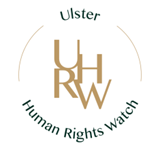Newsletter Campaign 12: ‘40 days of shame’ over victims’ payment scheme
Ulster Human Rights Watch (UHRW) says that today marks ‘forty days of shame’ over the failure to get the Victims’ Payment Scheme up and running.
The human rights organisation says innocent victims of terrorism are made victims once again by the inability to make payments of between £2,000 and £10,000 per annum.
The scheme was to be introduced forty days ago but disagreement over the definition of a victim, which had already been approved in Westminster legislation, forced the scheme again to be put on the long finger.
Ulster Human Rights Watch and the ‘News Letter’ have run a continuous campaign to highlight the treatment being meted out to genuine victims of terrorist actions.
Throughout the campaign, UHRW has backed the unambiguous Secretary of State’s guidance which blocked payments to former terrorists injured ‘at their own hand.’
Axel Schmidt, Advocacy Manager, Ulster Human Rights Watch, says it is a matter of very deep regret that nothing has happened to advance the cause of innocent victims.
Mr Schmidt said: “What has happened to hundreds of victims who, through no fault of their own, were left with life-changing physical and psychological injuries is nothing short of a national disgrace.
“Bad enough that no preparatory work was done in the months before the May start date, but since May 29th we have witnessed callous and heartless indifference. Victims are once again being treated disgracefully.
“We have lived through forty days of shame with not even a glimmer of hope that this unsatisfactory situation will be resolved anytime soon.
“We are seeing a complete failure on the part of the Northern Ireland Executive and an inexplicable reluctance shown by our national Government to step into the breach. Doing nothing seems to be the preferred option of Ministers.
“Do not underestimate the sense of abhorrence and injustice being felt by innocent victims. Their very raw emotions have come through the stories of individual victims carried in the ‘News Letter’ over the past eleven days of this mini-campaign.
This ‘paper has given them a voice and their own words, captured on video and seen by thousands on the Ulster Human Rights Watch’s combined Twitter and Facebook social media platforms, have left no one in any doubt about the way they feel they have been treated.
“To the UK Government, I respectfully say again that it is time to end this disastrous situation and begin to treat people with decency and respect.”
Click here to view article
